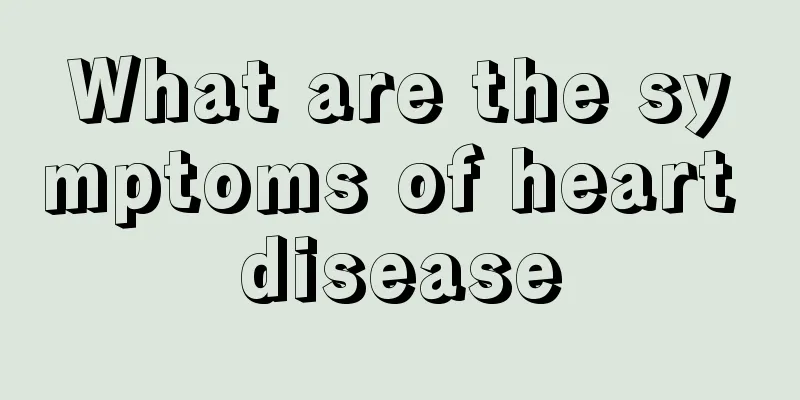What are the symptoms of heart disease

|
Nowadays, people are under great pressure in life and are facing the risk of unemployment at any time. Therefore, for some people whose heart cannot bear well, the probability of disease is getting bigger and bigger. In order to make the disease be discovered faster, it is necessary to understand the symptoms. Here are some common symptoms of heart disease. 1. The chief complaint is inconsistent with the objective examination. The patient feels severe palpitations, but 24-hour ECG detection or ECG monitoring shows no obvious arrhythmia. The patient feels short of breath after slight activity, but cardiac ultrasound shows good cardiac systolic and diastolic function. 2. The symptoms are numerous and cross-systemic. For example, there are cardiovascular symptoms such as chest tightness, shortness of breath, chest pain, etc., as well as a large number of other system symptoms involving the central nervous system, digestive system, urinary system, respiratory system, etc., which are difficult to explain with simple heart disease, such as dizziness, headache, insomnia, abdominal distension, indigestion, constipation, diarrhea, urgency, polyuria, sweating, hand tremors, numbness of hands and feet, preference for deep breathing, inability to go to closed environments, etc.; sometimes there are other strange complaints of discomfort, and the patients describe them very vividly, but the doctors become more confused the more they listen. These symptoms, which are not written in medical textbooks, often make experienced expert doctors feel embarrassed, and they can only let the patients go to the relevant departments for consultation to solve the problem. 3. Patients often have many concerns. They worry that the disease cannot be diagnosed and that heart disease will be dangerous sooner or later. They also worry that going for related examinations is unsafe and will cause pain. They worry most about adverse drug reactions. They repeatedly study the instructions for various drugs and become more and more afraid the more they read. They dare not take the drugs or change them frequently. In fact, these are just surface phenomena. If the doctor can be more patient and careful, show more care and encouragement, and gain the patient's trust, he or she may ask or let the patient speak out all kinds of emotional and psychological problems deep in their hearts, even if the patient himself or herself is not aware of such emotional and psychological problems, such as: 1. Excessive worry about illness (patients with high blood pressure worry about having a cerebral hemorrhage or a stroke and being bedridden, patients with coronary heart disease worry about myocardial infarction, patients with ventricular embolism worry about sudden death, etc.); 2. Being too nervous, like a frightened bird, easily frightened (slightest sounds, especially sudden sounds, can frighten the heart, even the ringing of a cell phone, the sound of a refrigerator starting up, the ticking of a clock, and hearing others quarreling, getting sick, or having an accident can frighten oneself to the point of trembling); |
<<: What can cardiac ultrasound detect? Is there any heart problem?
>>: What are the treatments for urethritis
Recommend
What is the correct way to do prenatal education?
With the development of society, the level of edu...
What should I do if my skin blisters are very itchy
Human skin is exposed to the outside world. After...
When is the latest time for twins to have fetal heartbeat and fetal bud?
I believe everyone hopes to have twins, but this ...
What are the symptoms before death of nasopharyngeal cancer?
Experts remind that the symptoms before death of ...
How should middle-aged men prevent liver cancer? Middle-aged men need to do 6 tests to prevent and treat liver cancer
Recent studies have shown that middle-aged men ar...
What is the cause of anal inflammation and what disease might it be?
The anus is more susceptible to infection. If the...
What are the dangers of prostate cancer
There are many types of prostate diseases, such a...
Six types of people cannot have Gua Sha
Although scraping has many benefits, there are si...
What should I do if I smell a bad odor?
Human beings are particularly sensitive creatures...
Can I drink Isatis root for a cold
Cold is a type of cold, and it is also a disease ...
What are the early symptoms of brain tumor and brain cancer
Early symptoms of brain cancer: abdominal distens...
How do dark spots on lips form
Sometimes people suddenly find black spots on the...
Ladies, be careful of these pains or they may cause you to die suddenly
These pains may cause you to die suddenly. Some p...
The reason why foreigners don't eat animal offal
In fact, many people will find in their daily liv...
Is it okay to wash your face with Yagao
Everyone loves beauty and fashion, especially the...









